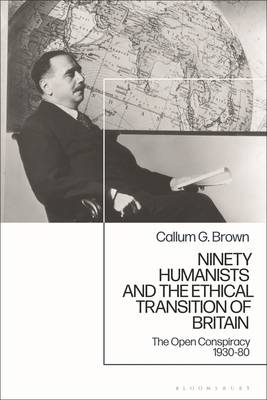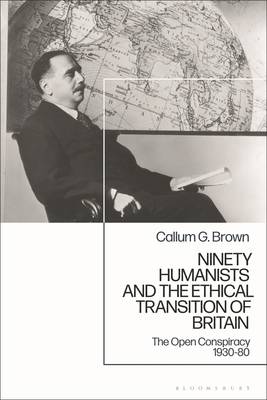
- Afhalen na 1 uur in een winkel met voorraad
- Gratis thuislevering in België vanaf € 30
- Ruim aanbod met 7 miljoen producten
- Afhalen na 1 uur in een winkel met voorraad
- Gratis thuislevering in België vanaf € 30
- Ruim aanbod met 7 miljoen producten
Zoeken
Ninety Humanists and the Ethical Transition of Britain
The Open Conspiracy 1930-80
Callum G Brown
Hardcover | Engels
€ 195,45
+ 390 punten
Omschrijving
This book re-writes the origins of the progressive 1960s. It argues that 94 leading British intellectuals, nearly all humanists, were inspired by H.G. Wells to amend the ethical laws of the nation under a banner of "The Open Conspiracy".
Using a wealth of correspondence and other materials covering 1930 to 1980, Callum Brown identifies a new motivation behind ethical change. Whilst established narratives attribute most changes to youth revolt, the sex revolution and feminism, he shows how a humanist-led network realigned much of the British state to the principles of humanitarianism, the autonomy of the individual, and internationalism. The author examines the network's campaigns and the work of individual intellectuals. High profile members come into focus, including Bertrand Russell, Julian Huxley, and Barbara Wootton. Highlighting the amazing breadth of the group's work, the book reveals 11 main areas of ethical ambition, ranging from abolishing world hunger, hanging, child beating and women's entrapment in abusive marriages, to nuclear disarmament and the promotion of federal world government. The result is a compelling new perspective on modern British history, and the key social and moral reforms of the past century.Specificaties
Betrokkenen
- Auteur(s):
- Uitgeverij:
Inhoud
- Aantal bladzijden:
- 296
- Taal:
- Engels
Eigenschappen
- Productcode (EAN):
- 9781350528277
- Verschijningsdatum:
- 13/11/2025
- Uitvoering:
- Hardcover
- Formaat:
- Genaaid
- Afmetingen:
- 156 mm x 234 mm
- Gewicht:
- 580 g

Alleen bij Standaard Boekhandel
+ 390 punten op je klantenkaart van Standaard Boekhandel
Beoordelingen
We publiceren alleen reviews die voldoen aan de voorwaarden voor reviews. Bekijk onze voorwaarden voor reviews.








